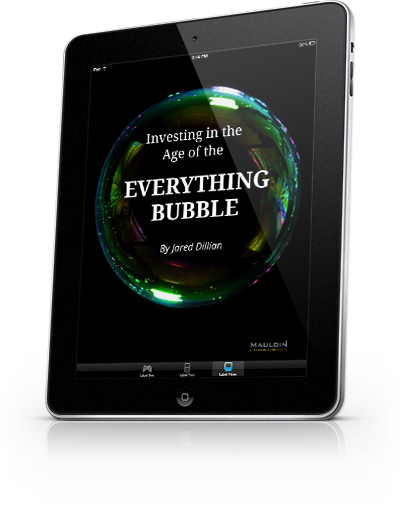| -- | September 21, 2017 Nothing Costs Nothing  One of my favorite scenes in Ocean’s Twelve is when Terry Benedict is walking through the Bellagio, talking to the Night Fox on his cell phone. The Night Fox tells him that he will reveal the identities of the Ocean’s crew, without asking for anything in return. Terry Benedict follows up with one of the most profound business quotes ever: “Nothing? Who do you think you’re dealing with? Nothing costs nothing!” 
Source: plentyofpopcorn.wordpress.com He is correct. Nothing costs nothing. Except Index Funds As you might have heard, there is a massive price war going on in ETF-land. Issuers are falling over themselves in the race to the bottom in fees. Clearly, they’re doing it because it works: Close to 20% of you who have taken my ETF survey so far* said low fees were the main reason you are invested in ETFs. I saw some funds the other day that had a .04% expense ratio. That’s four basis points, meaning that if you invest $10,000, you pay $4 in fees. In order for the fund issuer to earn $4 million in fees, the ETF has to have… $10 billion in assets. $4 million is not a lot of money. That is a lemonade stand. And attracting $10 billion in assets is no small feat—only a handful of ETFs have managed to do that. So anyone who issues an ETF with four basis points in fees is doing so at a loss. That’s capitalism in 2017! Producers impale themselves, consumers win. Somehow these businesses are worth something. I stand by what I said last week about high broker commissions being better for investor psychology, but you should ruthlessly exploit funds with low expense ratios. There’s no psychological benefit to a higher expense ratio, you’re just paying more. But fees are not everything. In fact, fees are only one of many considerations when you’re choosing an ETF—and they’re far down the checklist. How Do You Choose an ETF? Listen carefully. First, you have to answer the following question: what kind of ETF do you want? Debt or equity? Sector, currency, or commodity? Global or international? Let’s say you want an energy ETF. Well, there are 28 of them. For time’s sake, we won’t consider all 28 here, but let’s look at the top five in terms of assets: - XLE, the Energy Select Sector SPDR Fund
- VDE, the Vanguard Energy ETF
- XOP, the SPDR S&P Oil & Gas Exploration & Production ETF
- OIH, the VanEck Vectors Oil Services ETF
- IYE, the iShares US Energy ETF
Let’s say you want a broad-based energy ETF. That rules out XOP and OIH, which are subsector funds. The next step is to dig down into the holdings of the ETF, to look how the stocks are weighted and how top-heavy, or concentrated it is. | XLE Holdings | | Company Name | Index Weight | | Exxon Mobil Corp. | 22.1% | | Chevron Corp. | 17.3% | | Schlumberger Ltd. | 7.6% | | ConocoPhillips | 4.7% | | EOG Resources Inc. | 4.4% | | Occidental Petroleum Corp. | 3.9% | | Phillips 66 | 3.1% | | Kinder Morgan Inc. | 3.1% | | Halliburton Co. | 3.1% | | Valero Energy Corp. | 2.7% | | Source: SPDR |
| VDE Holdings | | Company Name | Index Weight | | Exxon Mobil Corp. | 22.4% | | Chevron Corp. | 15.1% | | Schlumberger Ltd. | 6.6% | | ConocoPhillips | 4.0% | | EOG Resources Inc. | 3.7% | | Occidental Petroleum Corp. | 3.4% | | Phillips 66 | 2.9% | | Kinder Morgan Inc. | 2.9% | | Halliburton Co. | 2.5% | | Valero Energy Corp. | 2.3% | | Source: Vanguard |
| IYE Holdings | | Company Name | Index Weight | | Exxon Mobil Corp. | 24.1% | | Chevron Corp. | 15.5% | | Schlumberger Ltd. | 6.7% | | ConocoPhillips | 4.1% | | EOG Resources Inc. | 3.8% | | Occidental Petroleum Corp. | 3.4% | | Phillips 66 | 2.7% | | Kinder Morgan Inc. | 2.7% | | Halliburton Co. | 2.6% | | Valero Energy Corp. | 2.3% | | Source: iShares |
You can see there isn’t a lot of differentiation among these indices; you’re essentially getting the same basket with each of the ETFs. So if you’re indifferent between the three, then look at the fees: That basically rules out IYE. So now we’re down to deciding between XLE and VDE. One thing a lot of people don’t consider: if you’re a customer of a full-service brokerage and you pay commissions on a cents-per-share basis, you want an ETF with a high dollar price per share, in order to minimize commissions. In this case, that would mean VDE ($91) over XLE ($66). But if you are a customer of a discount brokerage, it doesn’t really matter. One final concern is liquidity—you can get into this thing, but can you get out? All of these funds are pretty liquid, so liquidity is not a concern here. And that’s how you choose an ETF. We have designed a proprietary system to do just that, with little research time required (another major grievance thrown up by the survey). It’s pretty exciting. We’ll be unveiling it in the not too distant future.  I Need Your Help! Take my quick survey on ETFs and get a free copy of my latest special report, Investing in the Age of the Everything Bubble. |
Dicing Mouse Turds Some financial advisors are obsessed with fees. And the law has changed to ensure that they care about fees above all else (the fiduciary rule). But sometimes you need exposure to a certain asset class, and it doesn’t really matter what the fees are. You have to get it. The example I cited last week was EMLC, the VanEck J.P. Morgan EM Local Currency Bond ETF. The expense ratio is listed as 0.44%. You could turn up your nose at 0.44%, thinking it is too high (compared to ETFs with 0.04% fees), but you would be cutting off your nose to spite your face. First of all, the back office plumbing in an ETF that holds exotic assets on several exchanges in many different time zones just costs more. It ain’t free. Second of all, if you really want this asset class for whatever strategic ideas you have, you will probably make more money in returns than you spend on the expense ratio. Yes, costs are a big determinant of your returns. But not that big. And fees have come down to the point that we’re dicing mouse turds. It was one thing when we were talking about actively-managed funds with sales loads and 2% expense ratios. But fees have come down so much that you should be focusing on other things, like portfolio construction, and not fighting over the last basis point. Unfortunately, now your financial advisor has a legal incentive to fight over the last basis point rather than see the bigger picture. If you wanted a good dentist, you would pay for a good dentist. If you wanted a nice pair of shoes, you would pay for a nice pair of shoes. But people won’t pay for money management—even though it’s way more important to their financial future. It’s bizarre. 
Jared Dillian
Editor, The 10th Man *If you haven’t yet had the chance to take the survey, you can still do so here. And thanks to the thousands of you who have taken the survey so far.
 | Get Thought-Provoking Contrarian Insights from Jared Dillian
Meet Jared Dillian, former Wall Street trader, fearless contrarian, and maybe the most original investment analyst and writer today. His weekly newsletter, The 10th Man, will not just make you a better investor—it's also truly addictive. Get it free in your inbox every Thursday. |
Jared's premium investment service, Street Freak, is available now. Click here for our introductory offer. Jared Dillian, former head of ETF Trading at one of the biggest Wall Street firms and author of the highly acclaimed books, Street Freak: Money and Madness at Lehman Brothers , and All the Evil of This World , shows you how to pick and trade trends, and master your inner instincts. Learn how to use “Angry Analytics” as a leading indicator of budding trends you can profit from… and how to view any market situation through the lens of a trader. Jared’s keen insight into market psychology combined with an edgy, provocative voice make Street Freak an investment advisory like no other. Follow Jared on Twitter at @dailydirtnap. Share Your Thoughts on This Article
 http://www.mauldineconomics.com/members
Use of this content, the Mauldin Economics website, and related sites and applications is provided under the Mauldin Economics Terms & Conditions of Use. Unauthorized Disclosure Prohibited The information provided in this publication is private, privileged, and confidential information, licensed for your sole individual use as a subscriber. Mauldin Economics reserves all rights to the content of this publication and related materials. Forwarding, copying, disseminating, or distributing this report in whole or in part, including substantial quotation of any portion the publication or any release of specific investment recommendations, is strictly prohibited.
Participation in such activity is grounds for immediate termination of all subscriptions of registered subscribers deemed to be involved at Mauldin Economics’ sole discretion, may violate the copyright laws of the United States, and may subject the violator to legal prosecution. Mauldin Economics reserves the right to monitor the use of this publication without disclosure by any electronic means it deems necessary and may change those means without notice at any time. If you have received this publication and are not the intended subscriber, please contact service@mauldineconomics.com. Disclaimers The Mauldin Economics website, Yield Shark, Thoughts from the Frontline, Patrick Cox’s Tech Digest, Outside the Box, Over My Shoulder, World Money Analyst, Street Freak, Just One Trade, Transformational Technology Alert, Rational Bear, The 10th Man, Connecting the Dots, This Week in Geopolitics, Stray Reflections, and Conversations are published by Mauldin Economics, LLC. Information contained in such publications is obtained from sources believed to be reliable, but its accuracy cannot be guaranteed. The information contained in such publications is not intended to constitute individual investment advice and is not designed to meet your personal financial situation. The opinions expressed in such publications are those of the publisher and are subject to change without notice. The information in such publications may become outdated and there is no obligation to update any such information. You are advised to discuss with your financial advisers your investment options and whether any investment is suitable for your specific needs prior to making any investments.
John Mauldin, Mauldin Economics, LLC and other entities in which he has an interest, employees, officers, family, and associates may from time to time have positions in the securities or commodities covered in these publications or web site. Corporate policies are in effect that attempt to avoid potential conflicts of interest and resolve conflicts of interest that do arise in a timely fashion.
Mauldin Economics, LLC reserves the right to cancel any subscription at any time, and if it does so it will promptly refund to the subscriber the amount of the subscription payment previously received relating to the remaining subscription period. Cancellation of a subscription may result from any unauthorized use or reproduction or rebroadcast of any Mauldin Economics publication or website, any infringement or misappropriation of Mauldin Economics, LLC’s proprietary rights, or any other reason determined in the sole discretion of Mauldin Economics, LLC. Affiliate Notice Mauldin Economics has affiliate agreements in place that may include fee sharing. If you have a website or newsletter and would like to be considered for inclusion in the Mauldin Economics affiliate program, please go to http://affiliates.ggcpublishing.com/. Likewise, from time to time Mauldin Economics may engage in affiliate programs offered by other companies, though corporate policy firmly dictates that such agreements will have no influence on any product or service recommendations, nor alter the pricing that would otherwise be available in absence of such an agreement. As always, it is important that you do your own due diligence before transacting any business with any firm, for any product or service. © Copyright 2017 Mauldin Economics | -- |
